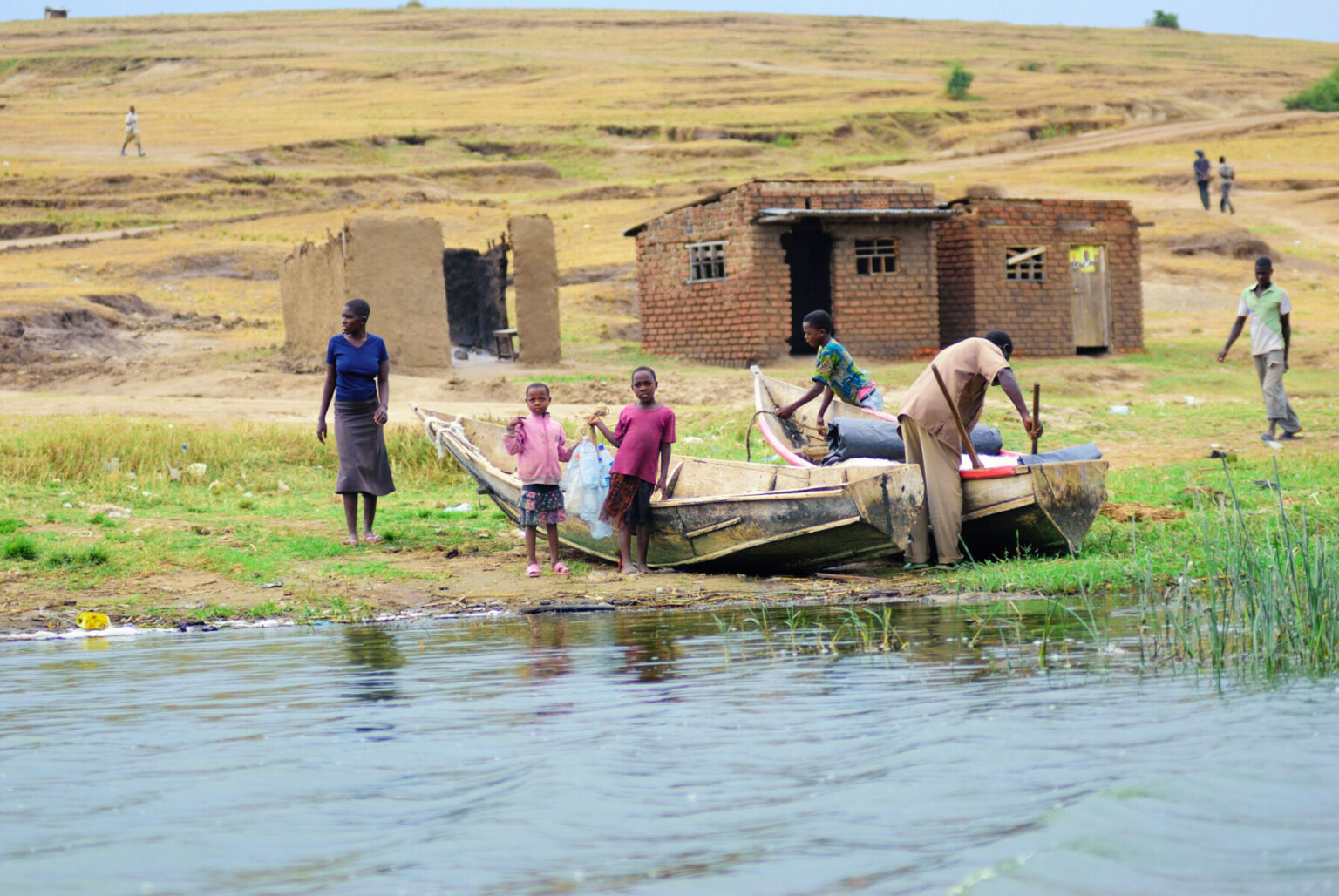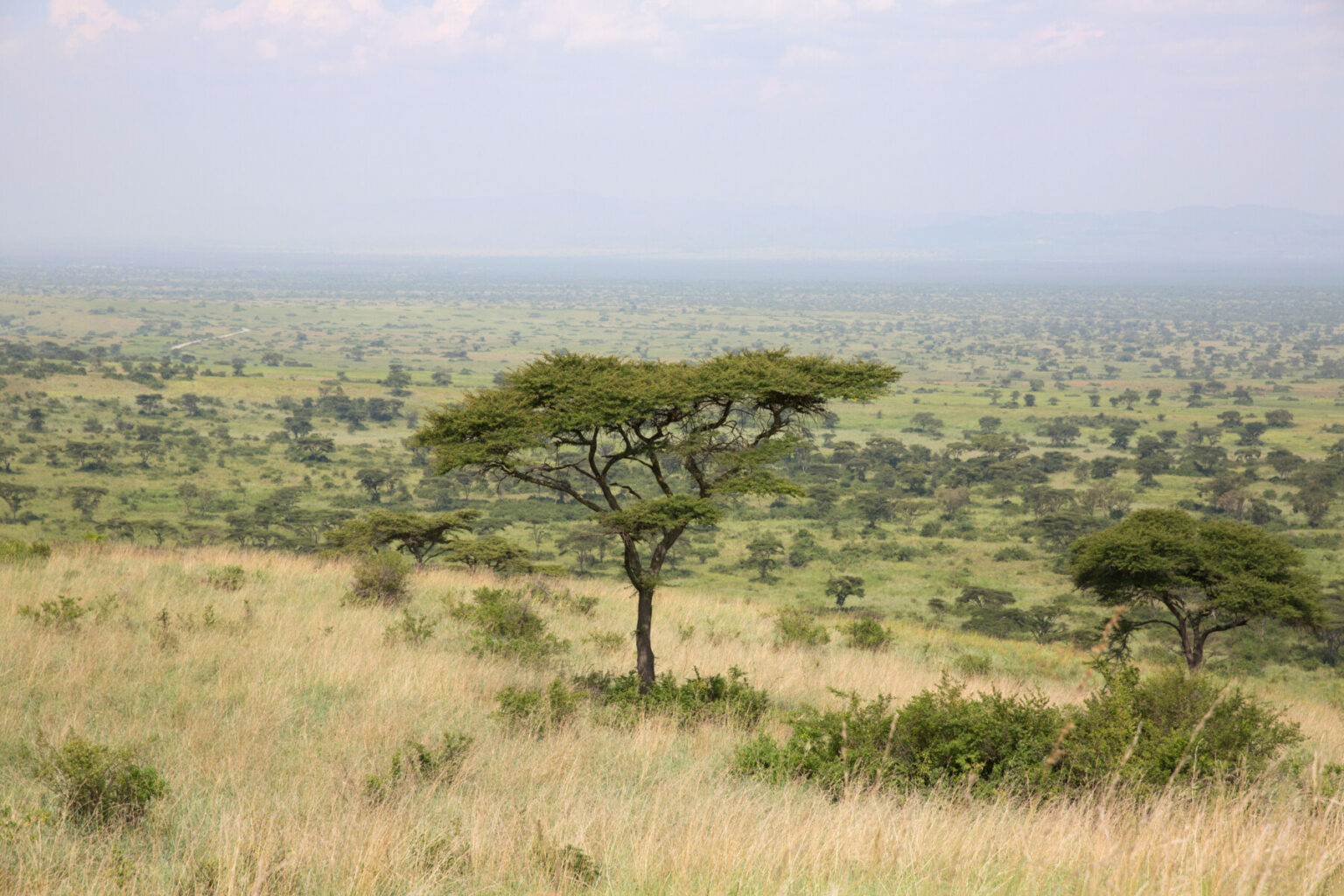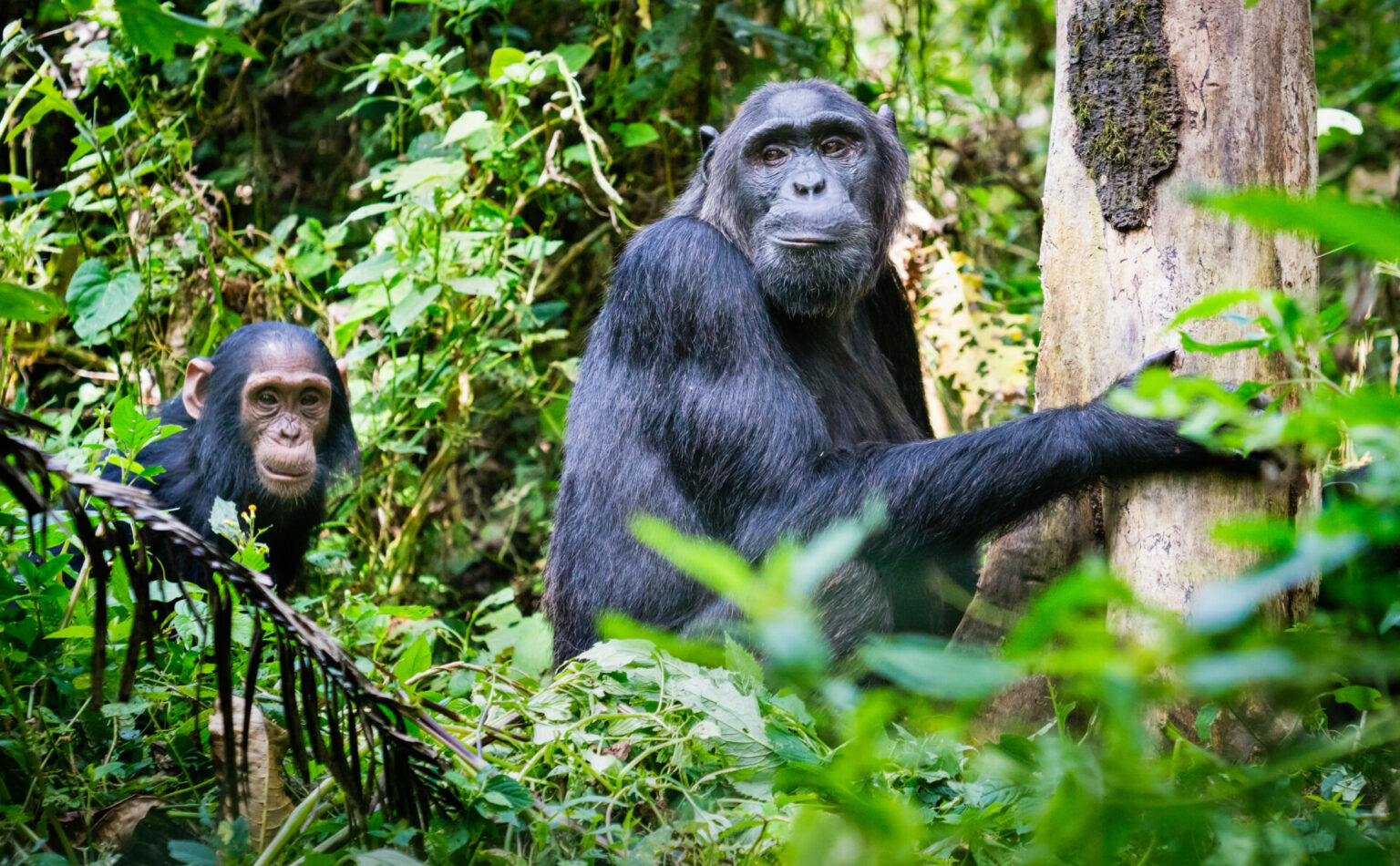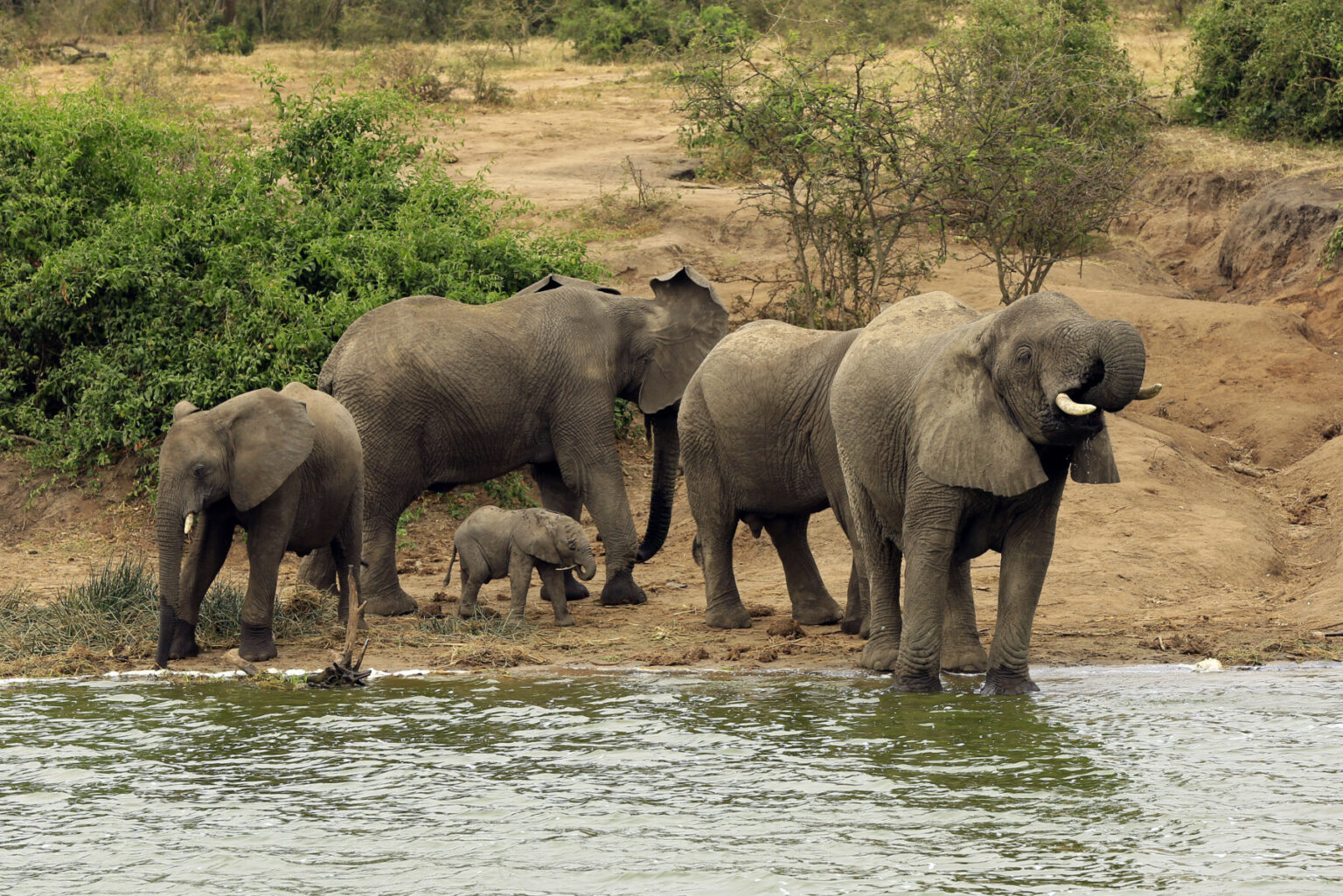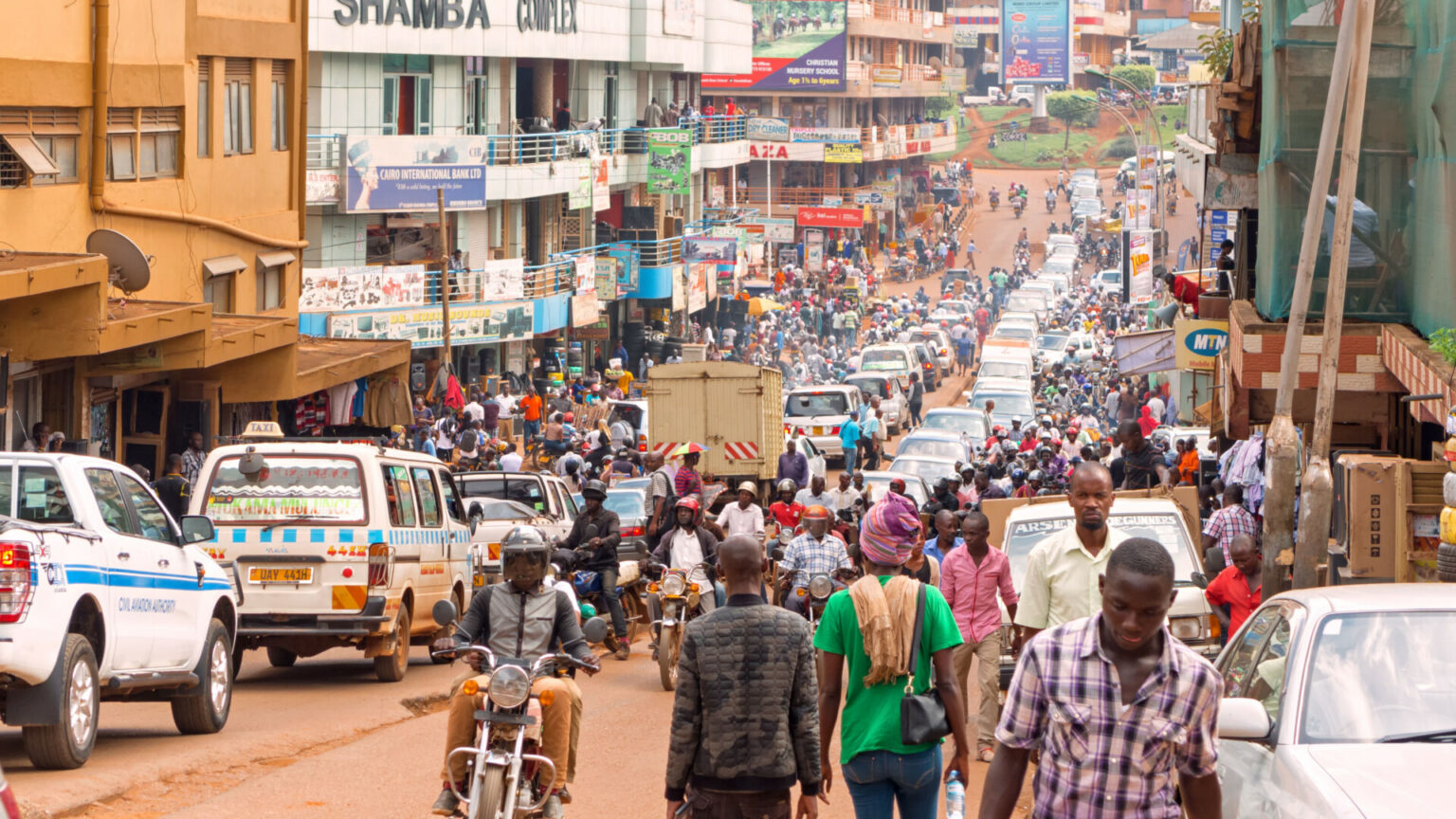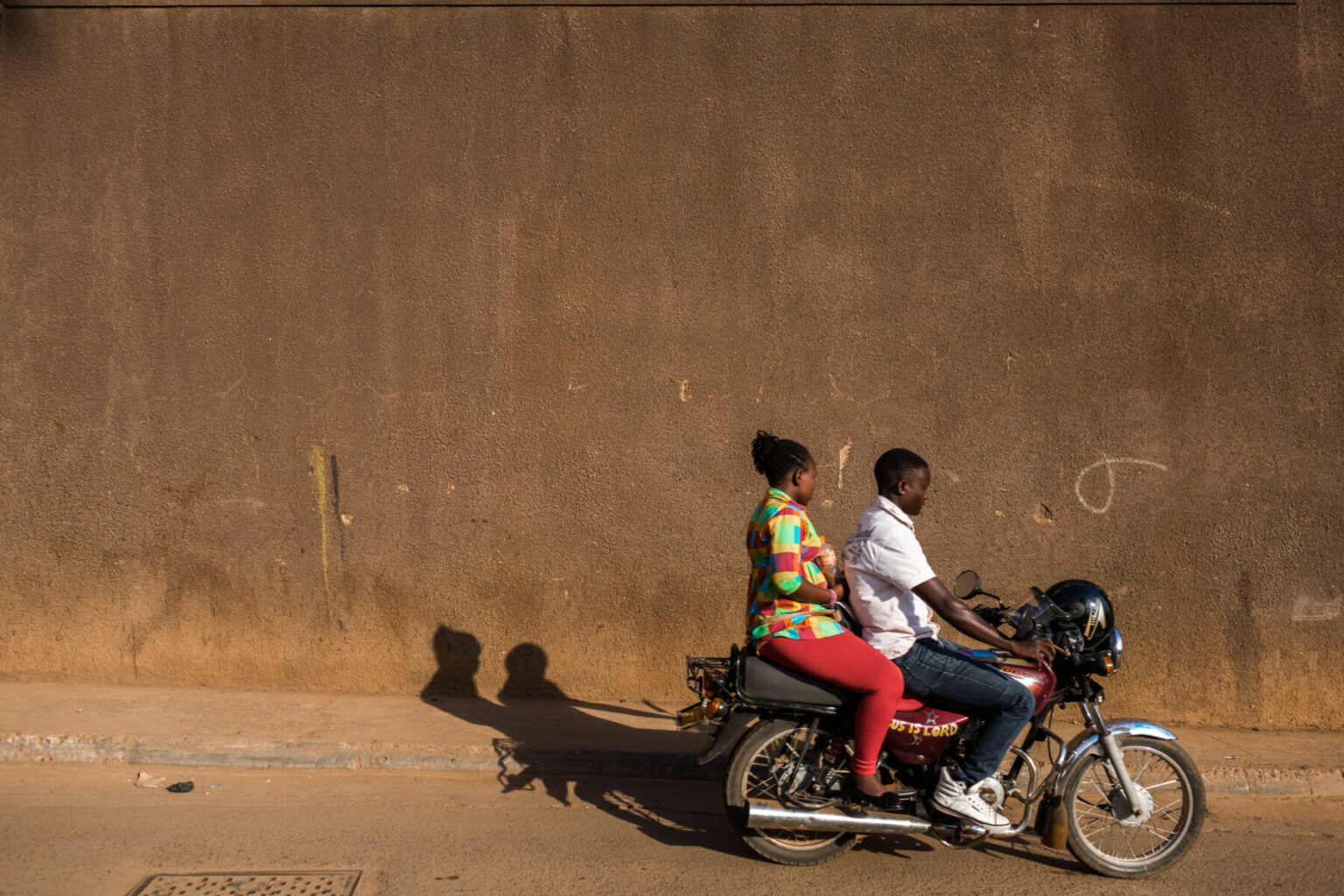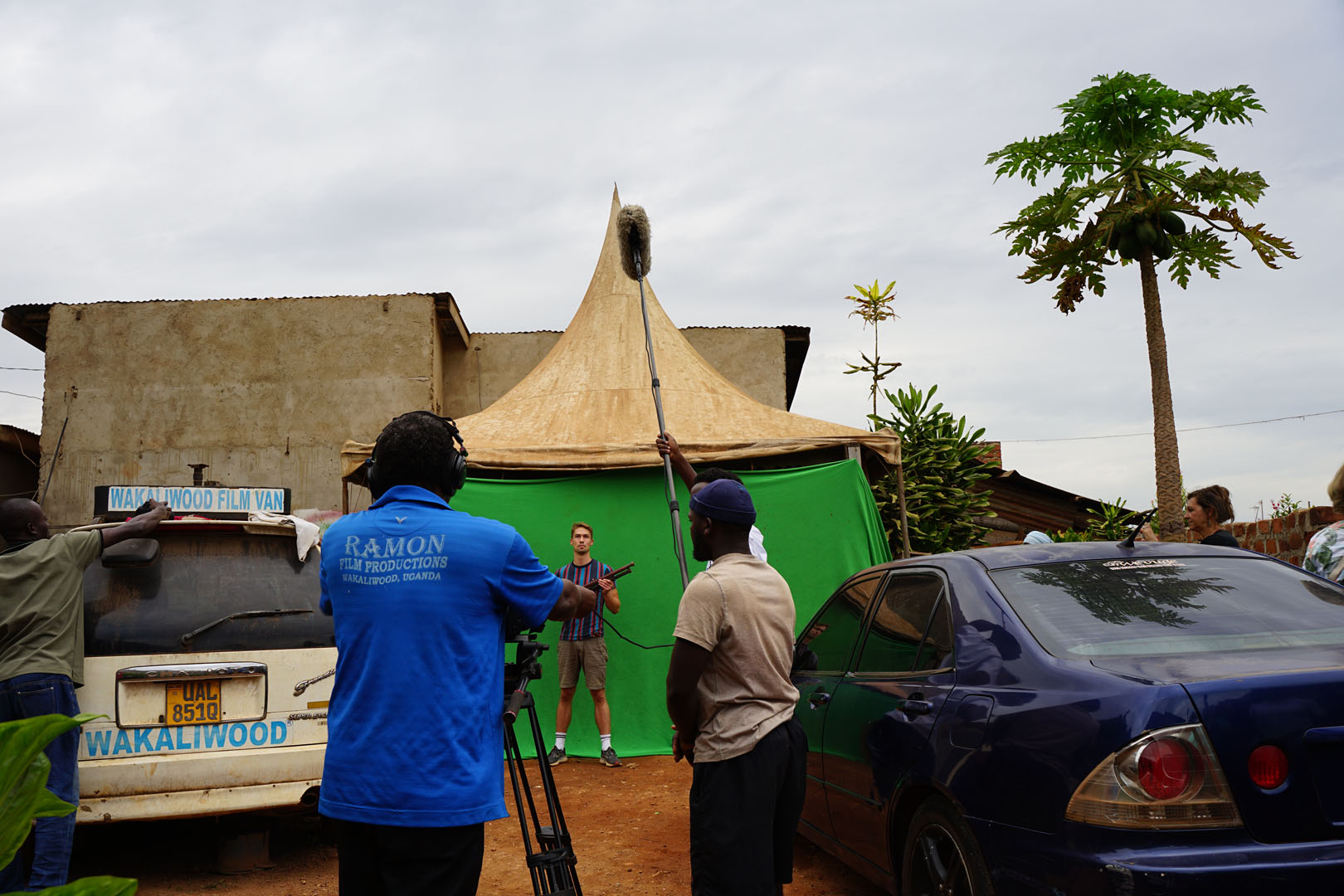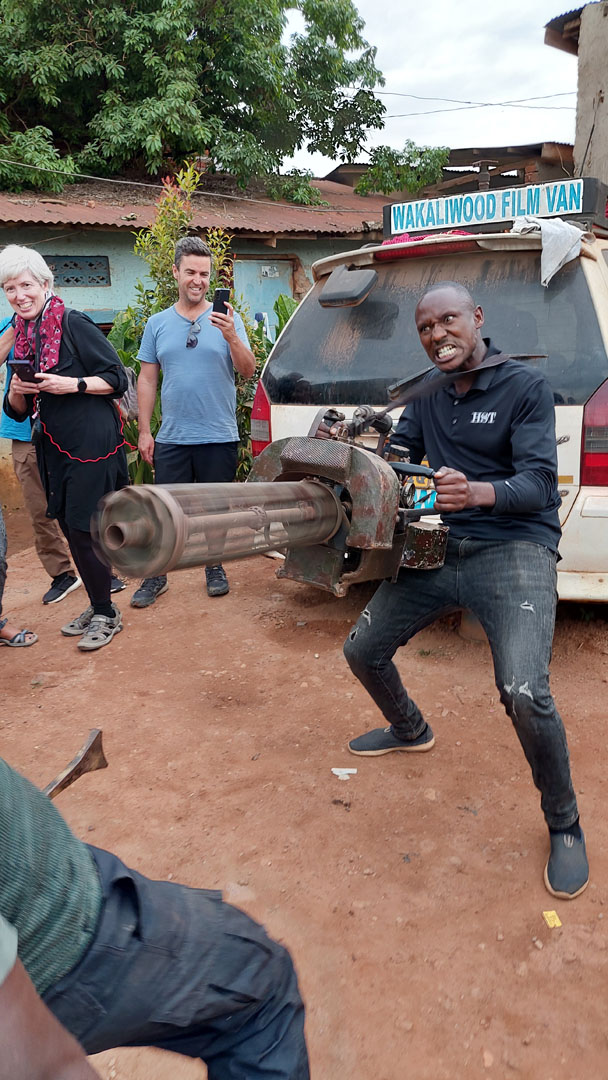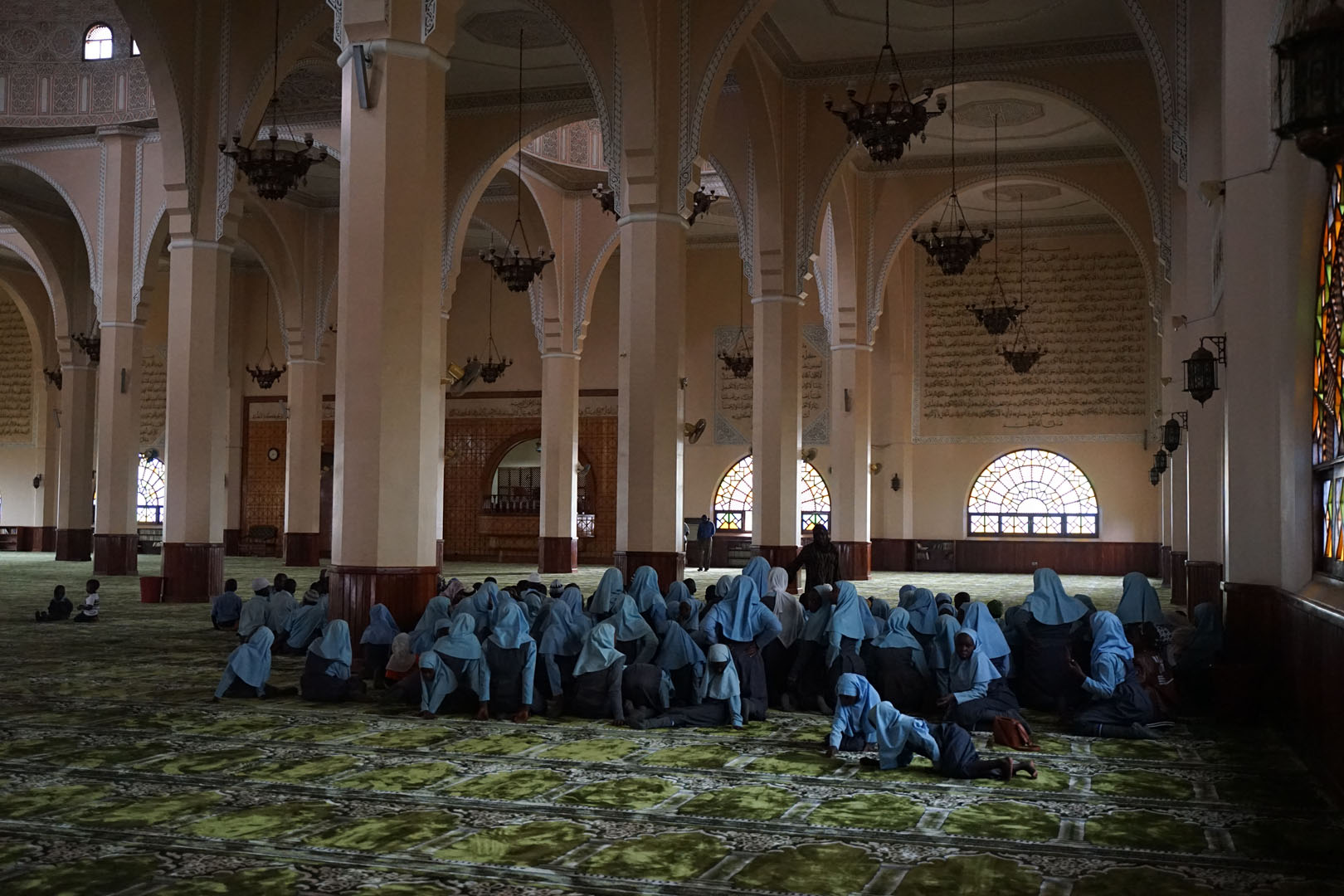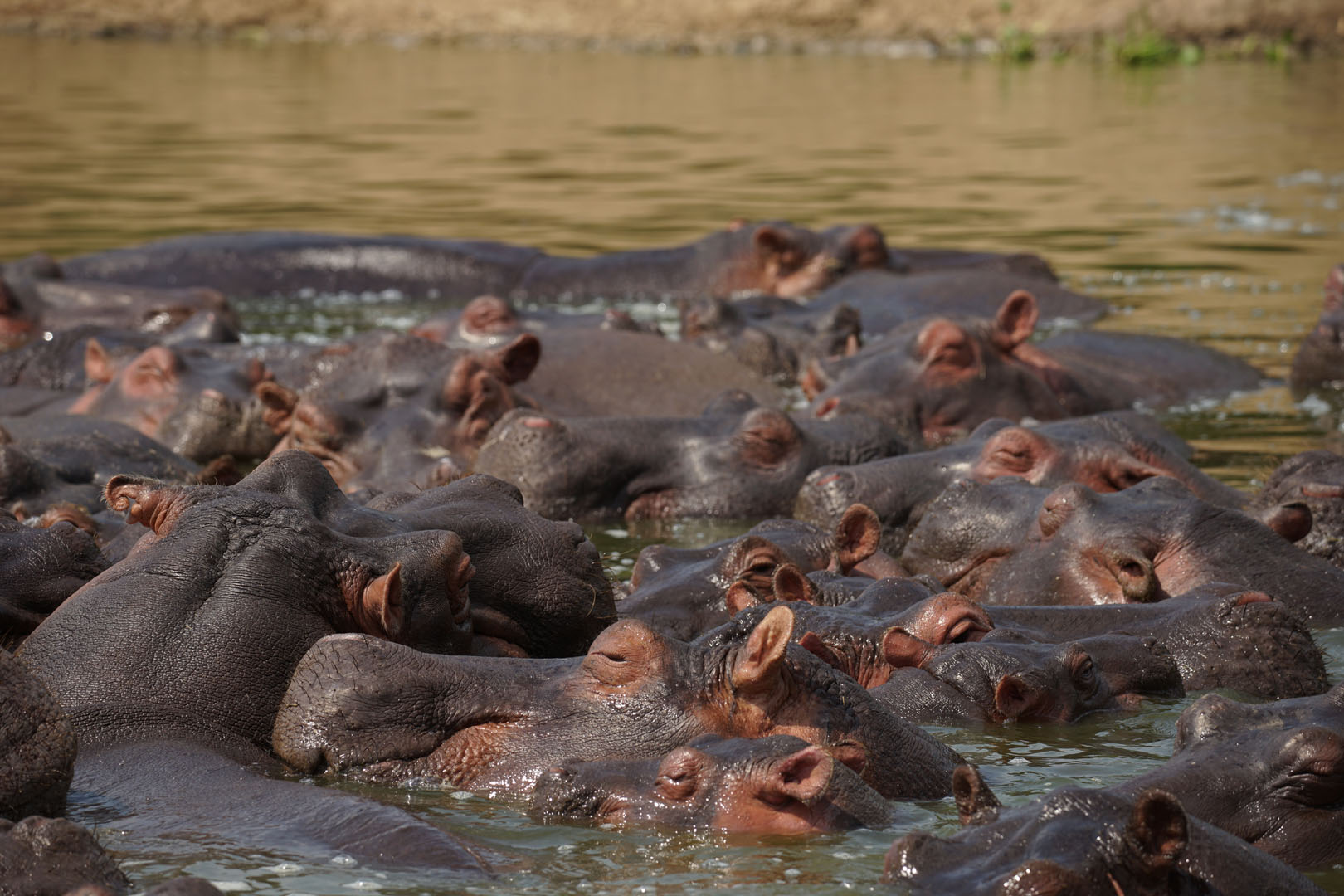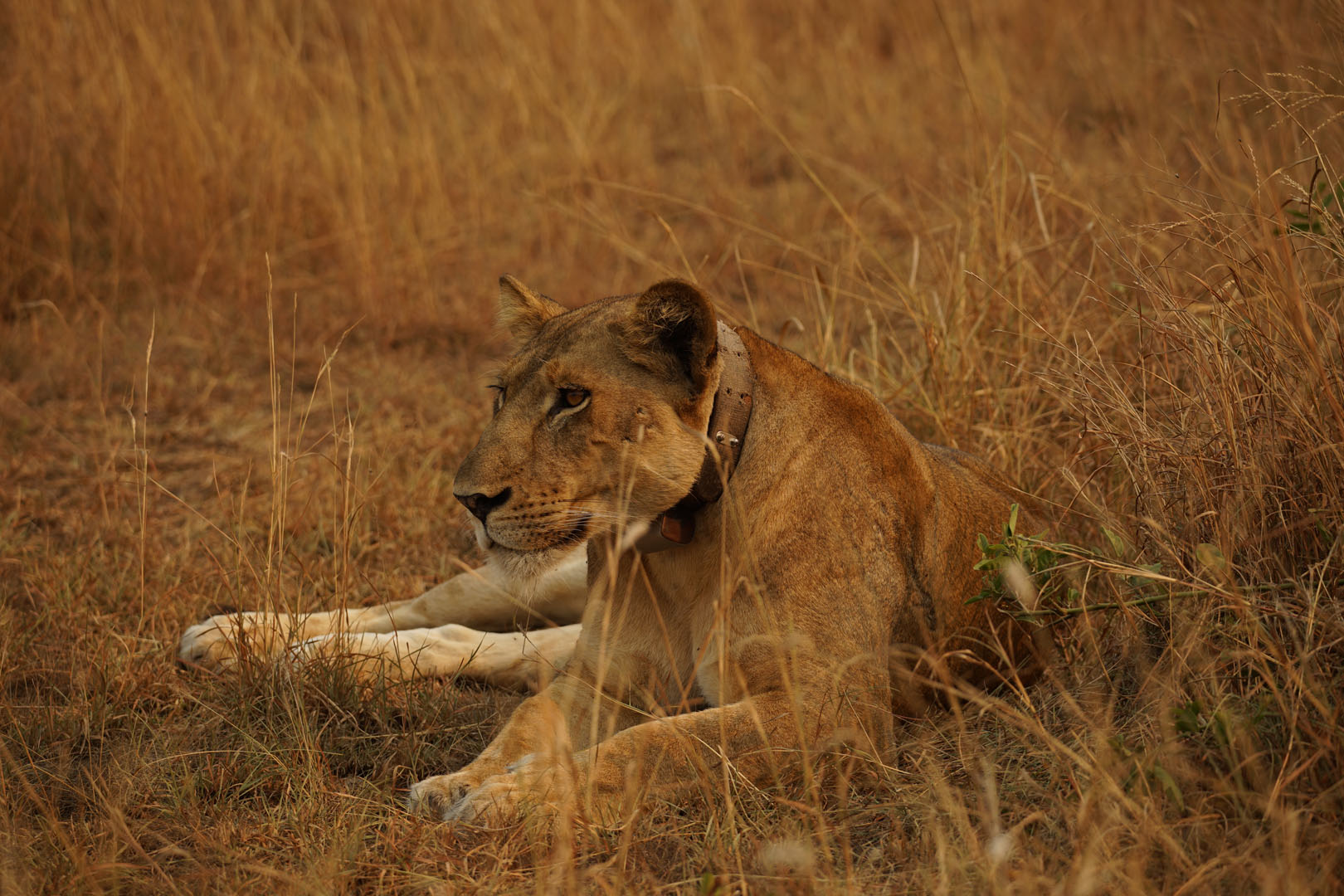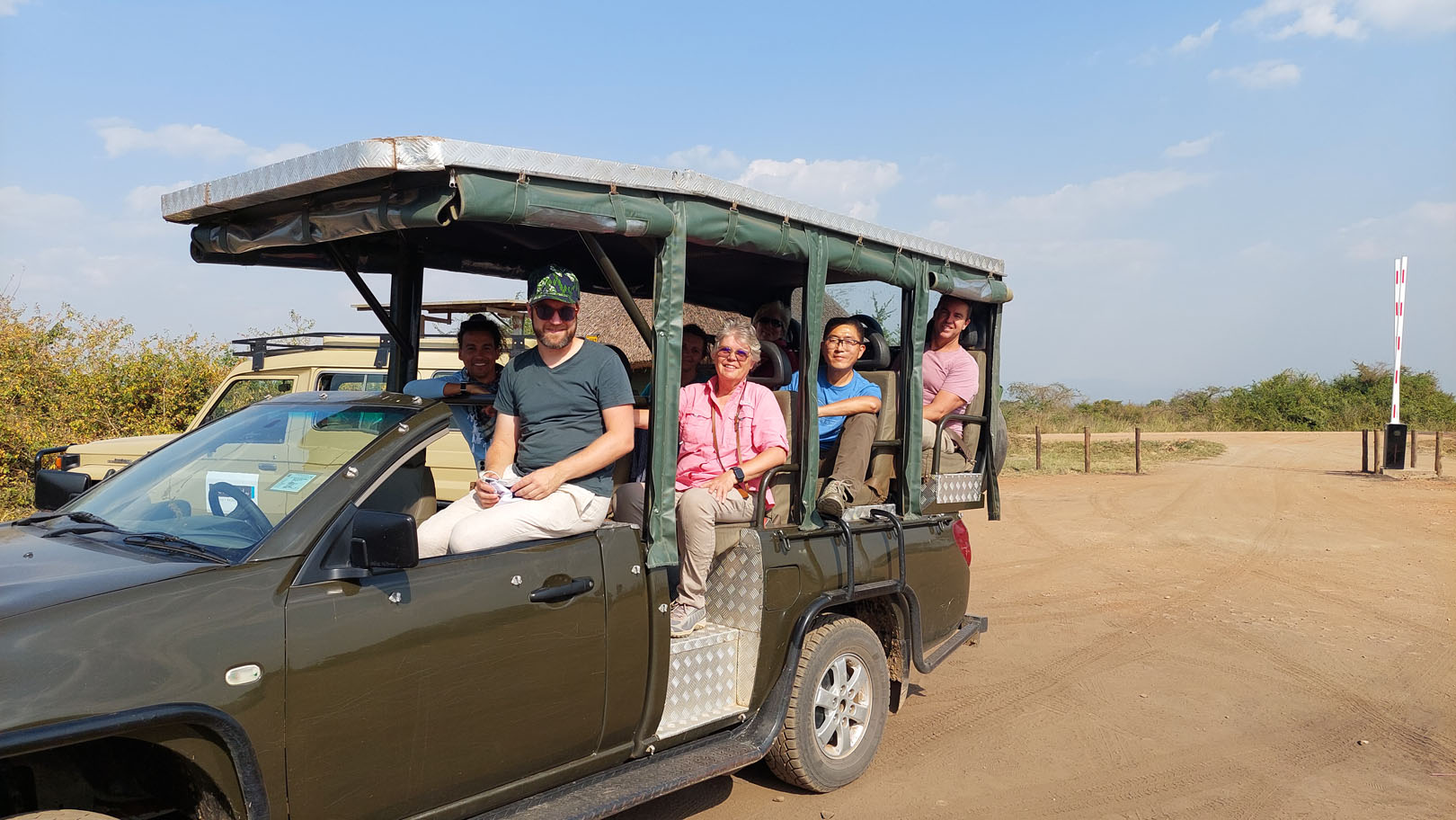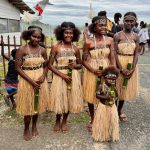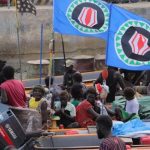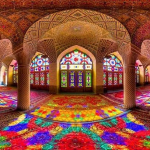YPT Tours to Uganda for 2026 and 2027
YPT has been offering Uganda tours since 2023, as part of our wider East Africa Combo Tour which takes in Burundi, DR Congo, and Rwanda.
Once associated with the chaos and brutality of Idi Amin, Uganda is a nation transformed and is now affectionately known as the “Pearl of Africa.” Despite being the same size as the UK, it contains no less than 60 ethnic groups, 10 national parks, and half of Africa’s birdlife. From the stunning shores of Lake Victoria to the lush Bwindi Impenetrable Forest – home to most of the world’s remaining mountain gorillas – Uganda is a land of incredible wildlife and landscapes.
This fascinating country, with its tumultuous history yet resilient people, offers a unique experience for visitors as it opens up to tourism.
Group Tours to Uganda
Currently, you can travel with YPT to Uganda on our East Africa Combo Tour!
The East Africa Combo Tour operates at least annually and allows you to see Uganda alongside the complementing countries of Burundi, DR Congo, and Rwanda. These states all have overlapping cultural, historical, and economic ties with each other, so it is a great opportunity to experience them all on one trip with YPT!
East Africa Combo: Burundi, DR Congo, Rwanda, and Uganda – March 7th – 16th / 20th 2026 – €1845 / €3995 / €5295
Independent Tours to Uganda
If your availability does not align with the scheduled tour dates, then YPT can organize a private tour for you. We will plan according to your timeframe and budget and can even craft a bespoke itinerary based on your interests. Prices depend on the number of people and what level of accommodation you desire, but YPT can arrange everything you need for perfect independent Uganda tours.
Independent Uganda tours can be done entirely in the country, or be combined with tours to Rwanda or Burundi.
Example of a Uganda Itinerary (8 days)
Day 1 – Arrive in Entebbe/Kampala
- Arrive at Entebbe International Airport, one of the best-connected in Africa. Thanks to a new highway, it should take around 90 minutes to transfer to your hotel in Kampala.
- Check-in and relax in your hotel, located in the centre of Uganda’s capital.
- Depending on when you arrive, take an afternoon city tour of Kampala.
- Start at the Kasubi Royal Tombs, where the Buganda chiefs are buried and a major cultural landmark for the people of the largest traditional kingdom in East Africa.
- Visit the Gadaffi Mosque, the heart of the country’s Muslim community and financed by former Libyan President Colonel Gadaffi. You can climb 50m to the top of the minaret!
- Drive through the “Seven Hills” of Kampala, seeing prominent institutions such as the Ugandan Parliament, Nakasero State House, and Makerere University, the oldest in East Africa.
- Grab dinner out in the city and try Ugandan street food!
- Overnight in Kampala.
Day 2 – Kampala – Equator – Bwindi National Park
- Have breakfast and check out of the hotel early. Now, you’ll begin your adventure across this vast country!
- After 2 hours, break your journey at the Equator monument. Take some photos at the sign marking its exact spot and see how water goes the other way now you are in the Southern Hemisphere.
- Stop for lunch at a traditional African restaurant near the city of Mbarara.
- Continue to drive to Bwindi National Park, heading higher into the mountains as you go.
- You’ll arrive and check in to your safari lodge just before dusk. You’re now almost 2,000m above sea level!
- Dinner and overnight at your lodge in Bwindi National Park.
Day 3 – Bwindi National Park
- Wake up early for breakfast, so that you can maximize your chance of seeing the mountain gorillas.
- Drive down to the edge of the trail. Here, you’ll receive a briefing from park guides about your trek and what to do when you see the gorillas!
- Spend the day tracking the magnificent mountain gorillas through the dense forest, accompanied by three expert guides. 99% of treks will involve a sighting.
- Once you find a family, you will have an hour with them before heading back.
- You will return to your lodge anywhere from 1 to 6 hours after your trek starts, depending on where the gorillas are. Therefore, you will likely have time for local activities in the afternoon, such as a community walk or Batwa cultural experience. Many of the villagers here will tell you stories of gorillas having walked into their village!
- Head back to your lodge for dinner, which is usually African food with a Western twist.
- Overnight in Bwindi National Park.
Day 4 – Bwindi National Park – Kibale National Park
- After breakfast, say goodbye to the mountains and drive north to Kibale National Park (5 hours). The reserve is known for its diverse population of primates.
- Check in to your safari lodge, where you’ll also enjoy lunch.
- Head out for a guided nature walk in the Bigodi Wetland Sanctuary, which contains the largest chimpanzee population in Uganda. It’s also famous for its rich birdlife.
- Walk back to your lodge as the sun sets, where a Ugandan buffet will be waiting for you.
- Overnight in Kibale National Park.
Day 5 – Kibale National Park – Murchison Falls
- Following breakfast at the lodge, you’ll pack up and drive to the crater lakes area in the northern part of the park.
- Spend the morning exploring the 50 volcanic crater lakes found in this small area.
- Continue your Ugandan road trip north to Murchison Falls National Park (6 hours), having a packed lunch en route.
- Arrive in time for sunset at your lodge, which is located right on the Victoria Nile River.
- Have dinner on the terrace and check into your room overlooking the park’s savannah.
- After lunch, depart for Murchison Falls National Park, Uganda’s largest national park.
- Arrive at your lodge and relax.
- Overnight in Murchison Falls National Park.
Day 6 – Murchison Falls National Park
- Murchison Falls is Uganda’s largest national park, so we have dedicated a whole day to seeing as much of it as possible!
- Fill up on breakfast before your morning game drive to spot an array of wildlife. Commonly known as the “big 5,” we hope you’ll see elephants, lions, buffalos, rhinos and leopards.
- Pop in for lunch back at your lodge, before heading out on an afternoon boat cruise on the Nile River.
- You’ll go to the base of Murchison Falls, where the Nile forces its way through a spectacular narrow gorge. Here, the world’s longest river squeezes itself through a 7m wide opening in the rocks.
- If you feel up to it, take a short walk to the top of the falls for an amazing view of the Nile Valley as it cuts through the park.
- Search for those final few animals on the drive back to your lodge for dinner.
- Overnight in Murchison Falls National Park.
Day 7 – Murchison Falls – Gulu
- Take your time for breakfast and check out of the lodge for the next part of your Ugandan adventure to the city of Gulu, around 3 hours away.
- Far off the normal tourist trail, Gulu is the cultural capital of the Acholi people. Arrive in time for lunch and freshen up in your hotel before going out to explore.
- While things have improved drastically in the last decade, Gulu is a city with a tragic past. Thousands of children used to walk hours to sleep here after school, escaping the threat of the extremist Lord’s Resistance Army in their villages. You’ll get to meet some of them today, as well as the NGOs who continue to deal with refugees from neighbouring countries.
- Have dinner out in town, celebrating your final night in the “Pearl of Africa.”
- Gulu comes alive at night, so take an optional visit to a local night market.
- Overnight in Gulu.
Day 8 – Gulu – Kampala/Entebbe
- After breakfast, begin the 6-hour drive south back to Kampala.
- Stop for lunch en route in the town of Luweero.
- Arrive in Kampala at mid-afternoon, where your tour comes to an end. The city has great bus connections to the rest of East Africa.
- Alternatively, if you are flying out of Entebbe International Airport, take advantage of a tour of that city before your departure flight. Sitting on the magnificent Lake Victoria, Entebbe is one of the most cosmopolitan places in Uganda.
- You may also want to continue your African adventure by joining us on one of our regular group tours on the continent. We can also arrange your private tour to continue into neighbouring Rwanda, Tanzania, Kenya, DR Congo, or South Sudan.
Bespoke Uganda Tours
We can offer the following bespoke programs. Should what you are looking for not be on this list, please get in touch to see if we can fix it for you.
Kampala City Tour
Despite its large population, Uganda remains an overwhelmingly rural country, with few major cities. However, its capital, Kampala, more than makes up for this, with over 6 million people calling this vibrant city home. Take advantage of time at the end of a tour of Uganda or a layover at nearby Entebbe Airport, which has recently been linked to the capital by a new expressway.
Start with a driving tour of downtown Kampala, visiting major landmarks including the famous Seven Hills of Kampala, the Nakasero State House, Makerere University, and Mulago Hospital. You’ll also go to the Kasubi Royal Tombs, which is the burial place for the Buganda royal family. At the nearby Uganda National Museum, you can learn about Uganda’s history before breaking for lunch at a nearby restaurant. Kampala is a religiously diverse city, so we’ll take you to the Gaddafi National Mosque, the Bahai Temple, Namirembe Cathedral, and Rubaga Cathedral to showcase this diversity. Finally, you’ll whiz through the central markets on a boda-boda (the famous moto-taxi) before returning to your hotel or the airport in the evening, having experienced the essence of Uganda through its bustling capital city.
Uganda Gorilla Tour
Uganda is probably most famous for being one of only three nations to still have a population of Mountain Gorillas. With the country being safer than Congo and less expensive than Rwanda, consider a trip to the Pearl of Africa to see these magnificent animals.
- Option A – Kigali – Bwindi NP – Kigali: Gorilla permits are around half the price in Uganda compared to Rwanda, with Bwindi National Park being only around 4 hours from Kigali, allowing for time at the border. Stay 2 nights in this spectacular national park, allowing a whole day for your gorilla trek before taking part in cultural activities such as a community walk or Batwa cultural experience. Then, head back across the border to Kigali, or you can choose to stay in Uganda and further explore this magnificent country.
- Option B – Kampala – Bwindi NP – Kampala: As above, but instead start your gorilla tour in Kampala or straight from nearby Entebbe Airport. The 8-hour drive from the capital to Bwindi National Park takes you across the swamps, savannah and mountains of Uganda. You’ll also break your journey by stopping at the equator monument and then enjoying a traditional African lunch in the southern city of Mbarara.
- Option C – Kampala – Bwindi NP – Kampala via Flight: If you are short on time and want to maximize your time in the National Park, then take advantage of the daily flights from Entebbe straight into Bwindi. Leaving at 07:00, you’ll be treated to spectacular views of the lush mountains in your hour-long flight, before transferring to your lodge. Now, instead of travelling, you can spend the entire day exploring the national park, including a full-day Batwa community visit or a coffee production and tasting tour. Day two will be dedicated to your gorilla trek before an early 06:00 flight the next day takes you back to Entebbe in time for breakfast!
Ghosts of Uganda Tour
Discover the history and resilience of Uganda through our Ghosts of Uganda Tour. Famous for the brutality and eccentricities of Idi Amin in the 1970s, Uganda has seen multiple conflicts since independence but has made remarkable progress in recent years. This unique journey delves into the tumultuous past while showcasing the impressive strides that the country has made.
Start in Entebbe for a tour of the famous old terminal, where in 1976 the Israeli hostage rescue mission unfolded. The visit offers a detailed account of the operation and its lasting impact on both Uganda and Israel. Then, head to Kampala to learn more about the Amin era, viewing the remains of the torture chambers where Idi Amin held tens of thousands of people just outside the capital. You’ll also be able to meet members of the Ugandan Indian community in Kampala, who were given just 90 days to leave the only home many of them knew by Amin. While many never returned, a small yet resilient community came back to rebuild their lives.
From Kampala, head north to the Luwero Triangle, an area heavily affected during the Ugandan Bush War in the 1980s. This region is now a symbol of recovery and growth. As you tour the Luwero Triangle, you’ll hear stories of the war and the efforts to rebuild and heal the community. Finally, travel to the far north of Uganda, exploring Gulu and the heart of Acholi land. Visit this former conflict zone, learn about the atrocities committed by the Lord’s Resistance Army (LRA), engage with local communities, and witness their efforts in rebuilding and fostering peace.
Filming in Uganda
Through our media arm Pioneer Media we can make arrangements for productions, journalists, or others to film within Uganda from big-budget to guerrilla productions. We can also arrange meetings in country, as well as correct visas for journalists wishing to do projects within Uganda.
Frequently Asked Questions about travelling to Uganda
If you need to apply for the eVisa then please do so through the Ugandan Government’s official website. On the portal, you are required to submit some basic information and mandatory documents, which include: a recent passport-size photo, proof of yellow fever vaccination, a return ticket, and a copy of your passport bio-data page with a validity of at least 6 months. The eVisa is usually issued in less than a week, and it will have a unique barcode attached. Print and bring it with you when you enter Uganda. At the border, you will then have your fingerprints taken and the visa issued as a full-page sticker in your passport. Welcome to Uganda!
Alternatively, if you are from one of the countries charged for the visa on arrival and plan to travel to neighbouring Rwanda and Kenya, you will likely want to take advantage of the East Africa Tourist Visa. For USD 100, you can visit all three countries as many times as you want in 90 days as long as you don’t exit to a third country.
A unique event worth experiencing is the annual Nyege Nyege Festival in September, a vibrant celebration of African music and culture held in Jinja, near the source of the Nile. Uganda also observes significant national holidays such as Independence Day on October 9th and Heroes Day on June 9th, which are marked with various cultural events and commemorations. Additionally, Christmas and Easter are celebrated with great enthusiasm, reflecting the country's strong Christian heritage.
While Uganda does not have the tourist infrastructure of more famous African destinations such as South Africa and Kenya, this is part of the country’s charm. Road conditions can leave much to be desired, although things are improving, and this causes inconvenience rather than danger. The biggest natural hazards are flooding and subsequent landslides, and although these seldom endanger tourists, they may delay travel. The Ugandan Government remains authoritarian, and while this has ensured a degree of stability in the country it would be unwise to enter a lengthy political discussion with a Ugandan. Citizens feel very passionately on all sides, and while you will not invite any legal problems you will likely make your hosts very uncomfortable. “Playing Devil’s Advocate” does not exist here and will not be welcomed.
Uganda is one of the most notoriously homophobic countries in the world. Same-sex relations have long been both banned and stigmatized, but in 2023 Uganda passed the “Anti-Homosexuality Act” to extend these prejudices. This bill further criminalized homosexuality with up to and including the death penalty. Even knowing someone who identifies as LGBT+ and not reporting it can be punished with up to 6 months in prison. Ugandans are generally Christian and socially conservative, and there is widespread public support for these laws. It is therefore recommended in the strongest terms to keep your sexuality private while in the country. Public displays of affection are utterly inappropriate regardless of who is involved.
US Dollars, Euros, and British Pounds can be exchanged easily, although smaller denomination notes fetch worse (5-10% less) rates. Other currencies are harder to exchange, although most things can be changed in Kampala or Entebbe for reasonable prices. It is beneficial to pay for more expensive services (such as safaris and hotel stays) in US Dollars, assuming you have not organized these before arriving.
Uganda is proudly a multilingual nation, with an estimated 70 different languages spoken. The primary language is Luganda, spoken by the Baganda people in and around Kampala. As a Bantu language, Luganda is less common in the northern regions, where non-Bantu languages such as Acholi are prevalent.
Generally, visitors will be fine with just English, although learning some phrases in Luganda or the local language of the region you are visiting will be gratefully appreciated.
We strongly advise having comprehensive travel insurance that covers medical expenses, including evacuation in case of severe illness or injury. Uganda does have hospitals and clinics in Kampala and Entebbe, but the healthcare system is hugely underdeveloped, and any major issue will likely require medical evacuation. We are not doctors, so we recommend talking to your medical professional and checking out our blog post, Seven Essential Health Tips for Globe-Trotters.
The Ugandan post service is generally reliable, albeit slow. Stamps for postcards cost around 4000 UGX and take an average of a month to reach Europe.
Gallery
